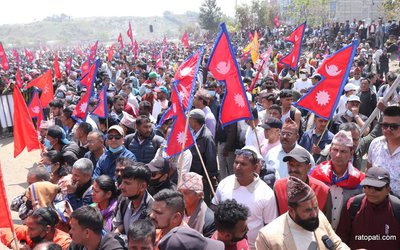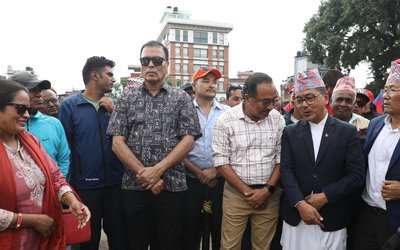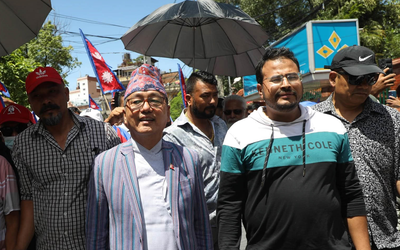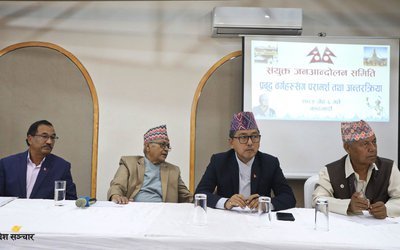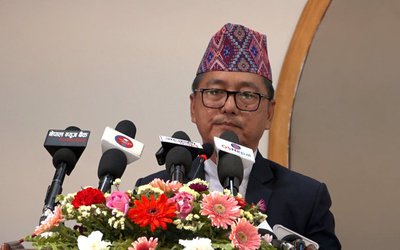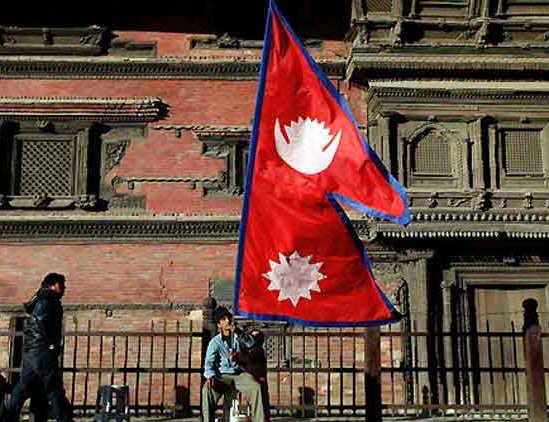
International observer teams from distant Europe and elsewhere have started arriving in Nepal ahead of the provincial and federal polls slated for November 26 and December 7. The over-enthusiastic Election Commission has earmarked a huge budget — approximately 11 billion rupees — to conduct the first election under the new constitution. Some suspect a lack of transparency in financial allocation and management.
Elections in a democracy trigger enthusiasm and hope in the people. It is shared by the contesting political parties as well as external stakeholders. Nepal is no exception. The arrival of international observers’ teams much in advance of the elections is an indication of the interest Nepal, a tiny nation of 290 million people, generates in the rest of the world. But there is also a visible sense of fear and skepticism. Will this election enhance hope and opportunities among the people, especially the youth? Or will it trigger more frustration and corruption? This is what the German ambassador to Nepal, Roland Schafex, asked while hosting a reception to celebrate German unification last Thursday. Germany’s goodwill as well as cooperation towards the yet-to-be completed peace process and political transition is much appreciated in Nepal. Ambassador Schafex’s question reflects the general mood and apprehension about the post election scenario.
The top leaders of all three major parties — the Nepali Congress and the Left Alliance (LA) consisting of the Communist Party of Nepal-Unified Marxist Leninist and Communist Party of Nepal (Moist Centre) — had claimed that this poll would be proof that the 2015 constitution has been fully executed and a failure (to hold the poll) could lead to Nepal’s rebirth as a Hindu kingdom. The fact is the threat to the constitution emanates more from K.P. Oli, the prime ministerial candidate of the Alliance, made it clear that the communists have no reason to stick to the “parliamentary system” if they win the poll. “Why should we communists stick to the parliamentary system?” he asked, while addressing election meetings in the eastern region, his home ground.
The controversial 2015 constitution is clear about parliament electing the prime minister as the chief executive and a ceremonial president. What Oli was hinting at was that the Alliance may amend the constitution and opt for an executive president with sweeping powers and no accountability towards the parliament. With the prospects of the Nepali Congress, the oldest but a clearly confused and demoralized party, on the decline, the fear of the Left dumping the constitution and imposing party supremacy in statecraft is real. Incidentally, the top leaders of the Left Alliance, Pushpa Kamal Dahal of the CPN (Maoist Centre) and Oli of the CPN-UML, share a common political lineage. Both started their political careers with the annihilation of “class enemies” and preferred “one-party dictatorship” throughout the 1970s. It is only many years later that both were forced to shun the politics of violence and join the democratic system.
Dahal and Oli now seem to nurture hopes of reviving the idea of a totalitarianism system. This could well be triggered by their recent experience in government that the civil bureaucracy, judiciary and almost all the other constitutional organs of the state could be turned servile, at the cost of constitutionalism and the principle of separation of powers. The Nepali Congress has no reasons to complain for it had actively endorsed this subversion of the democratic system. It should not surprise anyone if a verdict in favor of the Left Alliance is interpreted as an endorsement of the party’s supremacy over parliament and judiciary.
A democratic system in which the executive is not accountable to the elected parliament, which lacks an independent and credible judiciary, and where effective service delivery mechanisms are absent, in Nepal’s context, will undermine the peace process, the very foundation of political change inaugurated in 2006. The Truth and Reconciliation Commission (TRC) that would cease to exist in three months has not been able to take up any of the 61,000 human rights violation cases that took place during the Maoist insurgency because political parties, mainly the Maoists, refused to cooperate, out of fear that their top leaders and cadres could face trial.
“We have turned helpless in this political set-up,” says Krishna Adhikari, who was severely wounded when a public transport bus he was travelling in was ambushed by the Maoists a decade ago in Chitwan district. Thirty-eight passengers had died in that incident. “This was the worst case that took place during the insurgency,” Maoist chief Dahal, now a parliamentary candidate, admitted at an election rally last week. However, he neither promised justice to the victims nor did he apologies to them on behalf of his party. “We can’t do much, but the TRC must fulfill its mandate,” says National Human Rights chairman, Anup Raj Sharma. Many however, fear that the TRC and the peace process will be dead if the Alliance wins. It could well mean that the victims of the insurgency can’t expect any justice.
In the midst of all this confusion, questions are being raised about the transparency or lack of it on the part of the Election Commission. Misuse of government funds by the ruling parties, including the distribution of discretionary funds, has become brazen and routine. President Bidya Devi Bhandari signed a bill to ensure transparency in the conduct of private medical colleges only after a public-spirited doctor, K.C. Govinda, threatened to go on indefinite fast. In the past six years, he has sat on hunger strike 15 times for the purpose.
The hiccups aside, all eyes are focused on “the historic election” that is sure to deliver a parliament, most likely with the Left Alliance in majority. That, however, does not guarantee a new lease of life for democracy in Nepal.
Courtesy: Indian Express
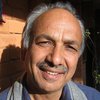
Yubaraj Ghimire
Ghimire is a Kathmandu based journalist.
- Manmohan Singh And The Churn In Nepal
- Jan 08, 2025
- Why ‘Revolutionary’ Communist PM Prachanda Went To Temples In India
- Jun 08, 2023
- Why China Is Happy With Nepal’s New PM
- Jan 03, 2023
- Prachanda Sworn In As PM: New Tie-ups In Nepal, Concern In India
- Dec 27, 2022
- Young TV Anchor As Its Face, RSP Rise Takes Nepal By Surprise
- Nov 23, 2022
